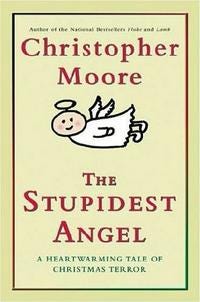So What, Who Cares (vol 1, issue 59) How the indignities of age now include a fondness for adult contemporary music
Hello! If you're reading this on a Wednesday, happy "Day that has not been dubbed anything in honor of the occasion of separating you from your money." There's only a few more of these suckers -- Free Shipping Day, ahoy! -- to go.
*
We have empirical evidence that aging holds fresh new terrors: Your personality is pretty much fixed by the time you're 30, you're likely to be in a bad mood for a few years in your 40s, and you will eventually succumb to the allure of light rock, less talk. Or so says science.

So what? This is another "The more you know" thing, with the idea that greater self-awareness about the interplay between hard-wired traits and conscious behavior can help you avoid making yourself more miserable than you're going to anyway.
Also, when someone's razzing you for knowing a little too much about Delilah's call-in show, you can just tell them it's the cruel ravages of age. Researchers from Cambridge's Department of Psychology found that our musical tastes shift with various milestones in psychological development: As teenagers, we use music as a scaffold upon which to construct our senses of independent selves and our places in the wider world, which is why teens are simultaneously drawn to intense genres and pop music. As we age, we settle into music that is "positive, relaxing" and "sophisticated," and likely to be aural wallpaper during social events. Why? Because our values have shifted from individual identity establishment to finding and reinforcing love and acceptance among our personal tribe. (More on tribes below.)
Who cares? Our personalities are largely determined by variability among five major traits -- openness, conscientiousness, extraversion, agreeableness, and neuroticism. (I like to remember them with the acronym OCEAN.) Those traits have a genetic component, to some degree, but -- and this is key -- we can act against those traits if we want, or we can control how and when we choose to engage in them most fully.
So if you're in your 30s (or beyond) and you know channeling some extroverted traits will help you get through a hellish workplace social event, you can probably fake it. But there are consequences, says psychology researcher Brian Little:
"The autonomic nervous system gets compromised, and it can have a depleting effect on us ... It's anxiety, really. Some of the indicators of autonomic arousal are, your heart starts pounding, and you have muscle tension — all the signs that would be regarded as a stress reaction."
Which is why that introvert comes home from the office holiday party and spends the next twelve hours not speaking to anyone.
Little notes that there has been little research into long-term adoption of traits we're not hardwired for (i.e. nobody has studied a bunch of introverts who have spent every day of the last ten years determined to act like extroverts), but he concedes that, "There is increasing evidence for neuroplasticity in human brains, such that it is possible that changes in the neural mechanism underlying [personality] traits may be rewired with sufficient practice."
So who knows? Maybe next year, science will discover that we can indeed dramatically overhaul our personalities while also fighting off middle-aged malaise.
And if this whole blurb has depressed you, I recommend Pamela Druckerman's excellent, "What You Learn In Your 40s," which is in no way a listicle a la "15 things only 40somethings understand" and more a droll recitation of things that became blazingly obvious after she crested age 44. My favorite part:
You find your tribe. Jerry Seinfeld said in an interview last year that his favorite part of the Emmy Awards was when the comedy writers went onstage to collect their prize. “You see these gnome-like cretins, just kind of all misshapen. And I go, ‘This is me. This is who I am. That’s my group.”’ By your 40s, you don’t want to be with the cool people; you want to be with your people.
*

Your holiday pop-culture note of the day: I'm making a second book recommendation because -- again -- there are three weekends left in which you can hide in a closet with a bag of mint truffle Hershey kisses and take a little dip in the Sea of You with a good read.
Today's recommendation is Christopher Moore's The Stupidest Angel: A Heartwarming Tale of Christmas Terror, which starts as an offbeat version of O. Henry's "The Gift of the Magi" (He's given up pot smoking so he can afford the broadsword she exercises with when she's not in the throes of bipolar mania! She's given up the meds that keep her sane so she can afford to buy him a custom-blown glass bong!) and then takes a hard left into zombie Santa territory. It is stupendously hilarious and a speedy read.
There are two versions of The Stupidest Angel. The one billed as 2.0 has a "one year later" short story epilogue tacked on, which is funny and zombie-free. But the main novel's what you want to read.
*
Did you miss an issue of So What, Who Cares? The archive is here.
Also, there is now a topic index that tells you what was in each issue. If you're like, "When did she send out a picture of Brandon Routh snuggling a kitty cat?" -- well, now you can find it. (It was November 11, 2014, btw.)
As always, I welcome your feedback and suggestions via email or Twitter. Always let me know what you think about So What, Who Cares? If you really like it, tell a friend to subscribe.

